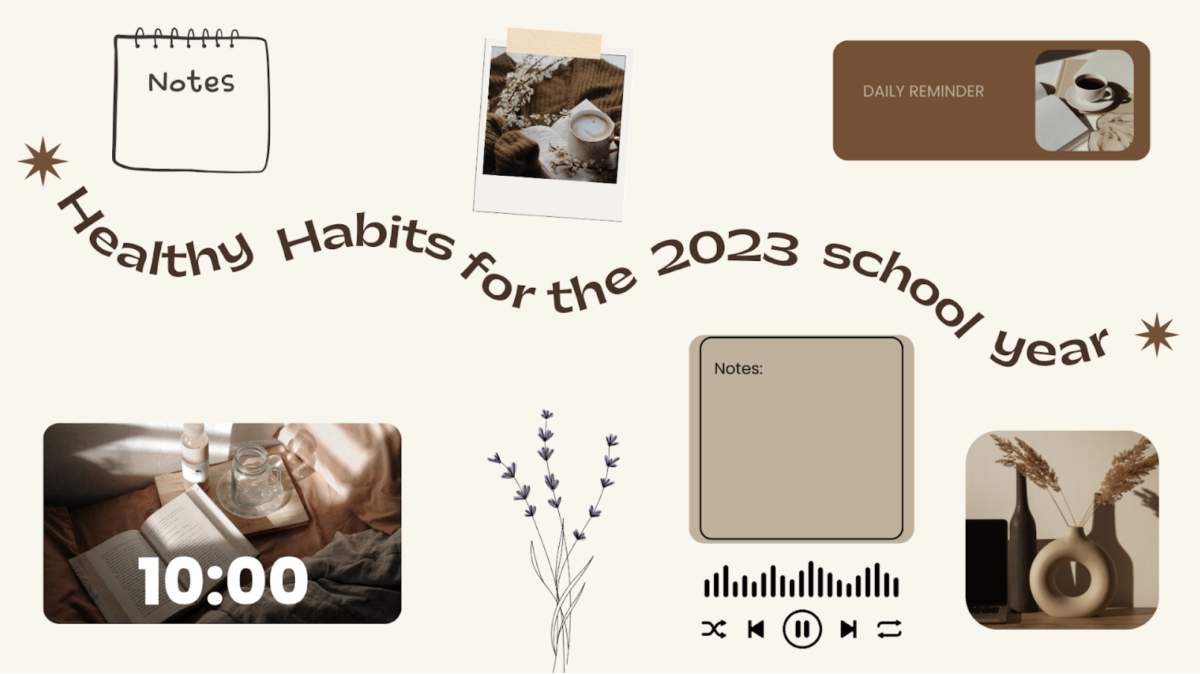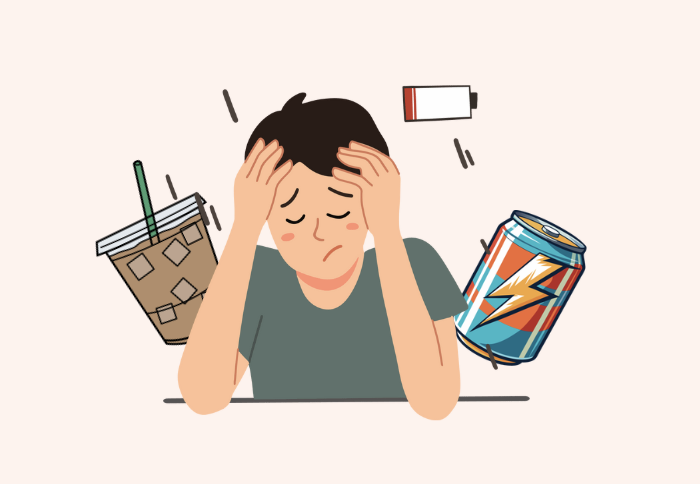The inevitable burden of stress and schoolwork is knocking on the door, signaling the start of a new school year at Calabasas High School.
It is easy to be overcome by frustration and anxiety with the assignments racking up, leaving the mind in constant distress. This school year, students should make mental health a priority, focusing on adjusting their habits to witness long-term improvement. Heading into fall, the Courier shares with you our recommended healthy habits to apply to the upcoming school year!
- Maintain a Healthy Sleep Schedule

High schoolers tend to forget how important sleep truly is for our mental and physical health. For students to stay concentrated in class, we need a good night’s rest to fuel our jam-packed school days. Teenagers are recommended to sleep 8-10 hours a day. Following your sleep schedule diligently is important, it allows your body to adjust and recharge for the day ahead.
Sleep is a must for intellectual and emotional growth.
According to the National Library of Medicine, “teens need more sleep because they are in a time of very fast physical, intellectual and emotional growth. Although getting enough sleep may not seem that big of a deal, medical research shows that teens who usually get too little sleep are more likely to struggle in school.”
- Make Boundaries to Limit Your Screen Time

It’s typical for students to fall into the endless loop on social media and scroll for hours. This may take away time for healthy habits during limited after-school hours. Setting realistic boundaries for how much screen time you can have will add productivity and structure to your day.
Limiting your screen time will decrease mental health struggles.
“Too much screen time can lead to obesity, sleep problems, chronic neck and back problems, depression, anxiety and lower test scores in children,” said Valley Wise Health.
- Read for 20 minutes before bed

Many students may see reading as a school assignment, instead, think of reading as a stress reliever. Even for a short amount of time, reading will automatically de-stimulate your brain. The simple routine of reading every night will help create a more routine lifestyle.
Reading will provide relief with your mind, decreasing daily stresses.
“Reading may reduce stress more than walking, listening to music or playing games,” said Toledo Library. “When people read a really engrossing book it actively engages their imagination, which in turn distracts from daily stresses.”
- Have a Goal-Oriented Mindset

Setting aside small, manageable goals will make the seemingly massive workload less daunting. Try breaking down your tasks into groups of homework, test prep, and self-improvement, and reward yourself each time you complete a goal.
Setting self oriented goals will help you hold yourself accountable.
“Goals are a great way to hold ourselves accountable, even if we fail,” said Positive Psychology. “Setting goals and working to achieving them helps us define what we truly want in life. Setting goals also helps us prioritize things. If we choose to simply wander through life, without a goal or a plan, that’s certainly our choice.”
- Work Hard Play Hard

Include a healthy balance between school and social life to retain a healthy mindset. After doing hard work, just reap the benefits and enjoy life. Finding time to relax and to participate in activities is just as important as it makes life worthwhile. Allow yourself time to take up new hobbies, play a sport, and build relationships with new people. It can be difficult to find a balance, but once you learn you’re cruising.
Setting a balance between work and play is significant to a student’s happiness.
“Finding a balance between work and play is crucial to living a healthy and happy life,” said Linkedin. “Too much work and no play can lead to burnout, stress, and a lack of motivation. On the other hand, too much play and not enough work can lead to financial instability, unproductivity, and a lack of direction.”
















